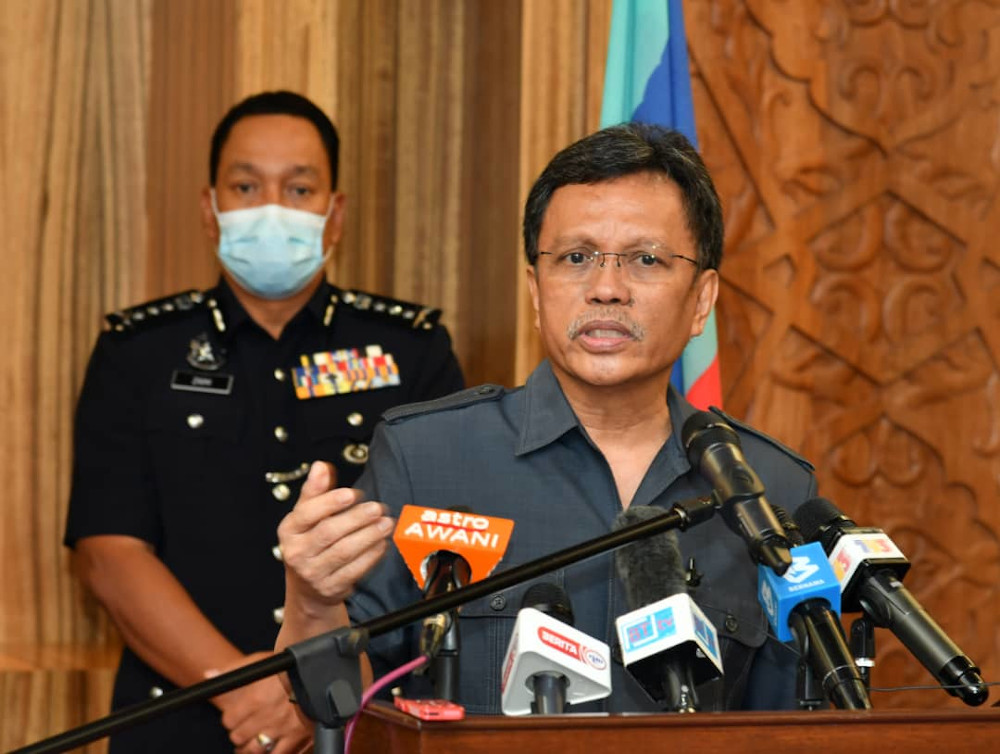KOTA KINABALU, May 6 — It is up to police in Sabah whether to enforce the federal-sanctioned conditional movement control order (CMCO) or maintain phase four of the MCO as decided by the state government, said chief minister Datuk Seri Shafie Apdal.
Maintaining that the state would not be lifting the economic sector as stipulated under the CMCO, Shafie said that it was not under the state’s jurisdiction to enforce other laws for movement of the people.
“It’s up to them to determine. But in Sabah we don’t have red zones anymore. If there are, I’d ask them to be stricter,” he said when asked to comment on a police circular which has, among other things, lifted the ban on interdistrict travel and have a two-per-vehicle rule as under MCO phase four.
“(As for having up to four people per vehicle) that’s up to the police to decide, and carry out under available laws. As we have announced before, we are preparing for May 12 when we will lift the shutters on certain sectors. Till then, we still keep certain things restricted as to uphold Act 342,” he said, referring to the Prevention and Control of Infectious Diseases Act 1988.
The state had on Sunday officially made its stand on the CMCO clear and it was reported yesterday that the city district police would be complying with the state’s decision.
However, a photo and circular released by police sources said that rules have been eased as per the CMCO, with people allowed to move freely within a district, and are no longer limited to buying necessities or seeking medical care within a 10km radius.
Movement within districts is allowed, without permission, but those who wish to travel interstate must seek police permission to do so.
“Private vehicles are allowed to carry up to four passengers, provided they are from the same household.
“Public transport vehicles are also allowed, but only allowed to operate at half their capacity,” said the circular.
Sabah, an Opposition state, has been complying with the movement control order (MCO) as stipulated by the federal government since March 18, with certain stricter rules.
Sabah, along with some other states, has however opted not to follow the recent easing of rules under a conditional movement control order (CMCO), which allows most of the economic sector to reopen, saying it was not consulted or informed prior to the decision and was not ready to open up the economic sector without strategies in place.
Yesterday he told reporters he would speak to the police and national security council at a meeting scheduled for next week.
Meanwhile, Shafie said that he will announce in detail how the state will reopen after the MCO concludes on May 12, outlining its strategies and assistance for certain sectors, under what he has dubbed “a new deal”.
“We will decide and it will be carried out by the relevant ministries. Let’s say, for example, tourism — how do we open hotels? We have to coordinate the corresponding flights as well, so we have to work with MASwings and MAS.
“That’s why we need time. The system is not there yet. Can’t just ask all the shops to open tomorrow. They won’t be ready. We have to notify them so they can be ready as well. I will spell it out on May 12,” he said.



















